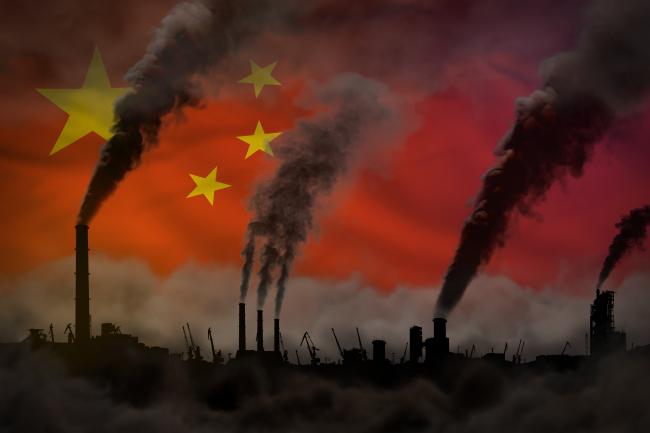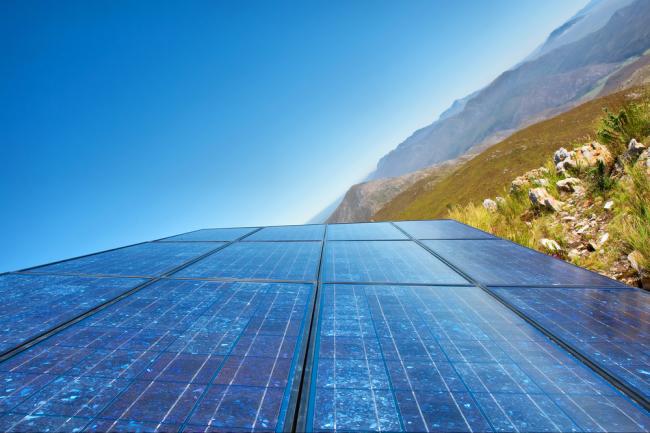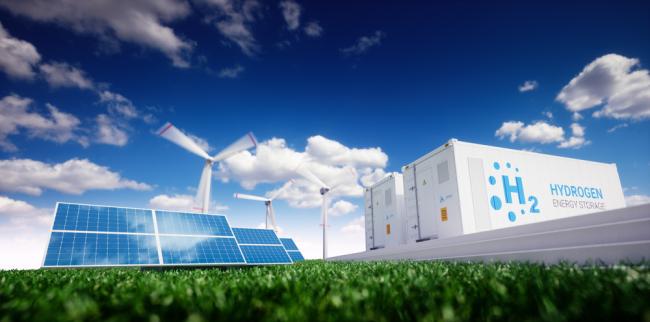Energy - Climate
In the face of the climate emergency and geopolitical confrontations, how can we reconcile security of supply, competitiveness, accessibility, decarbonization and acceptability? What policies are needed?
Related Subjects

COP30: An Inflection Point for Climate Action and Governance

The 30th Conference of the Parties (COP30), opening in Belém, Brazil, on November 10th 2025, convenes at a perilous moment.
Prospects of a Hydrogen Economy with Chinese Characteristics
This study assesses the prospects of a hydrogen economy with Chinese characteristics. Against the backdrop of an escalating US-China trade war and the ongoing novel coronavirus (COVID-19) pandemic, key Chinese stakeholders become increasingly interested in moving the hydrogen economy agenda forward.
The Renovation Wave: A Make or Break for the European Green Deal
European buildings are old and too often inefficient, past policies have not delivered and the amount of investment into energy efficiency must be scaled up dramatically to meet the 2030 targets and ultimately, the carbon neutrality objective.
Turkey’s New Gas Discovery in the Black Sea and Its Potential Implications
Turkish President Recep Tayyip Erdogan announced Turkey’s biggest gas discovery ever on August 21, 2020. Initial findings show that the estimated reserve capacity is 320 billion cubic meters (bcm) of gas.
Ambitious New Climate Goals Shouldn't Let China off the Hook
Xi Jinping’s announcement of carbon neutrality is impeccably timed, but the hard part lies ahead.
Japan’s Hydrogen Society Ambition: 2020 Status and Perspectives
Japan has been steadfastly promoting the development of its hydrogen economy at all levels: political, diplomatic, economic and industrial. It is yet to be seen if this excitement can be turned into a credible, cost-effective and large scale deployment.
Norway as a Decarbonization Hub for the European Union
The European Union (EU) is committed to reach climate neutrality by 2050. Similarly, Norway aims to create a zero-emission society by that same year.
Shaping the future of the EU: reviving the Europeanisation process
More than ten years after joining the European Union (EU), the Central and Eastern European countries (CEECs) exhibit a puzzle of attitudes and conceptions regarding the EU.
Solar Power in Sub-Saharan Africa after COVID-19: Healing the Ills of the Sector
The electrification of sub-Saharan Africa is one of the great challenges of the 21st century. It is essential if we are to succeed in creating the 20 million jobs each year necessary to absorb the demographic growth of the region,[1] which is set to have 2.1 billion inhabitants in 2050, compared to 1.1 billion today.[2]
Russia, the Global Sanitary Crisis and Oil Meltdown: Revisiting Power and the Enemy
In global affairs, the Covid-19 virus makes all countries, powers and individuals equal in one dimension: none is immune to or spared from contamination. In an open and interdependent world, we are all exposed to global sanitary and environmental degradations. Russia is no exception: it has gone into lockdown, with increasing economic and social costs adding up to the fall in oil and gas prices and upcoming impacts of the global recession.
Perspectives on a Hydrogen Strategy for the European Union
There is now a wide understanding that larger use of clean hydrogen in future can be an important mean to achieve decarbonisation of the European economy.
Middle East Oil and Gas Producers: Soon to Be Back in the Lead?
The World Energy Outlook 2013 published by the IEA confirms that despite the rise of unconventional fuels in particular in the US, Middle East will by the mid-2020s retake its place as the world major oil and gas supplier, providing most of the increase in global supplies. Well, there are some big ifs.
Ukraine: Is Europe Ready for Another Gas Cut?
The turmoil in Ukraine is now putting one question on everyone mouth: what if Russian gas transiting through Ukraine was cut once again? Today, Ukrainian gas pipelines still carry around 60% of the Russian gas intended for the European Union; i.e. around 16% of the EU final gas consumption.
Reading Rouhani Right
Poll numbers are the life blood of politics these days. Anything expressed in digits has a claim to truth that assertions without digits cannot make. They inspire confidence - especially among those aspiring to public office - that they actually understand what public sentiment is. If you lived between nuclear-armed Israel and Pakistan and had as many world class enemies as Iran has accumulated - would you give up your pursuit of a nuclear weapon?
The Impact of the Development of Shale Gas in the United States on Europa's Petrochemical Industries
The shale gas revolution has led to strong falls in energy prices, reducing significantly the raw material costs of the US petrochemical industry. Between 2008 and 2012, US gas prices fell by two thirds.
The Vegetation Programme
Under human pressure, many changes are taking place in the resources and the environment of Earth. An increasing global population fuels the need for food, natural resources and land. Consequently, the need for maintaining a capacity to observe and understand the Earth system and the biophysical processes has become a key element for the sustainable management of the planet’s natural resources. The SPOT-Vegetation instruments have significantly contributed to reach this goal.
Dynamics and drivers of shale gas development in three European countries: can a European policy be imagined?
The European Commission introduced in its Work Programme 2013 an action regarding “Environmental climate and energy assessment framework to enable safe and secure unconventional hydrocarbon extraction”.
Year 2 of Germany's Energy Transition
After a decade characterised by the take-off of renewable energies, Germany decided in 2010 to make them the top priority. At the same time, it decided to make exemplary efforts in terms of energy efficiency and the reduction of greenhouse gases. The audacious nature of this policy was strengthened by the “turn” taken in 2011 to give up nuclear energy in the wake of the Fukushima accident.
How is Russia Adapting to a Threatening New Energy World?
The US shale gas revolution has shaken global gas markets. The US is on the eve of becoming self-sufficient in natural gas (and oil), thanks to the massive discoveries of unconventional resources on their territory, while being able to export part of their production. These developments have been closely watched by traditional oil and gas producers.
The European Gas Market: A Reality Check
With the approach of the 2014 deadline for the completion of a truly European liberalized energy market, there is growing concern on the adequacy of the market structure with the changed economic and geopolitical environment. Market-based and short-term approaches have been fostered for both gas and electricity markets. Energy and climate policies have therefore a primary function in designing the basic rules for these markets to develop.
Offshore Gas in East Mediterranean: From Myth to Reality
The wave of deep offshore and unconventional gas and oil exploration projects, rendered economically feasible by relatively high prices and new technologies, has reached the shores of the Mediterranean. Levantine countries, including Cyprus, Israel, Palestinian Territories, Lebanon, Syria, have new offshore gas potentials.
Support independent French research
Ifri, a foundation recognized as being of public utility, relies largely on private donors – companies and individuals – to guarantee its sustainability and intellectual independence. Through their funding, donors help maintain the Institute's position among the world's leading think tanks. By benefiting from an internationally recognized network and expertise, donors refine their understanding of geopolitical risk and its consequences on global politics and the economy. In 2025, Ifri supports more than 80 French and foreign companies and organizations.

















